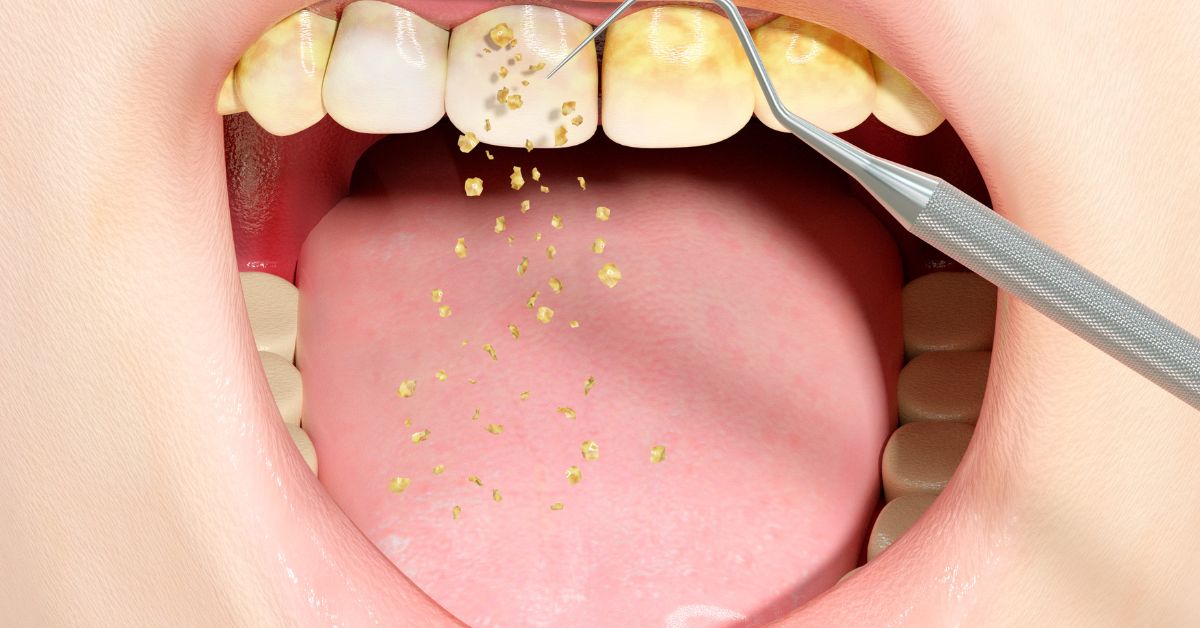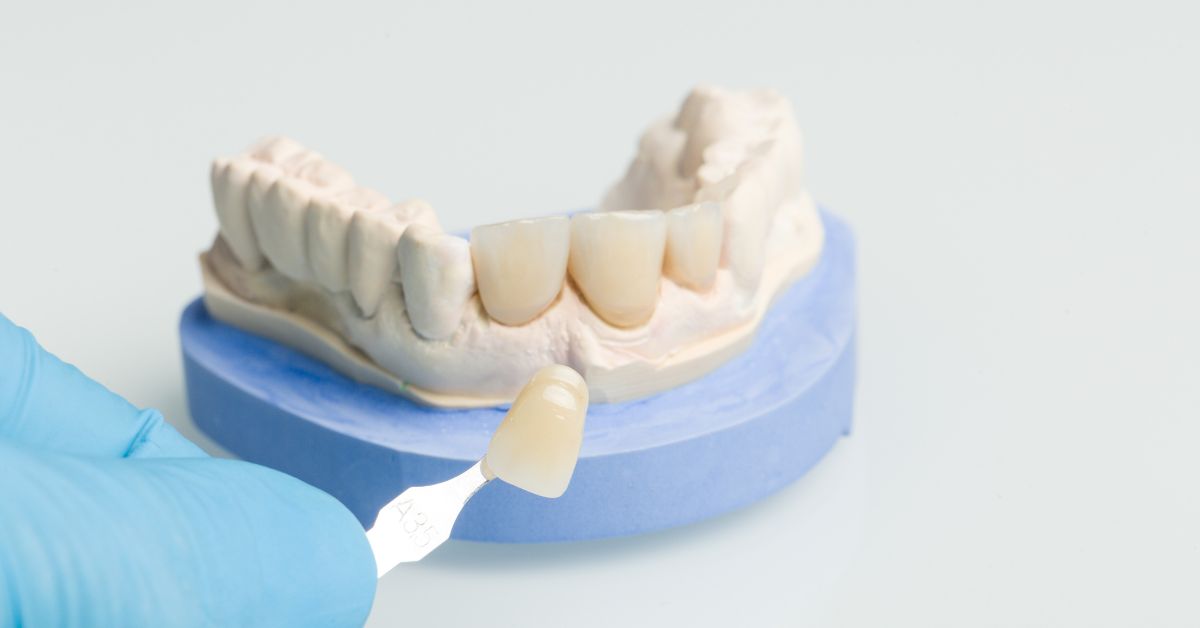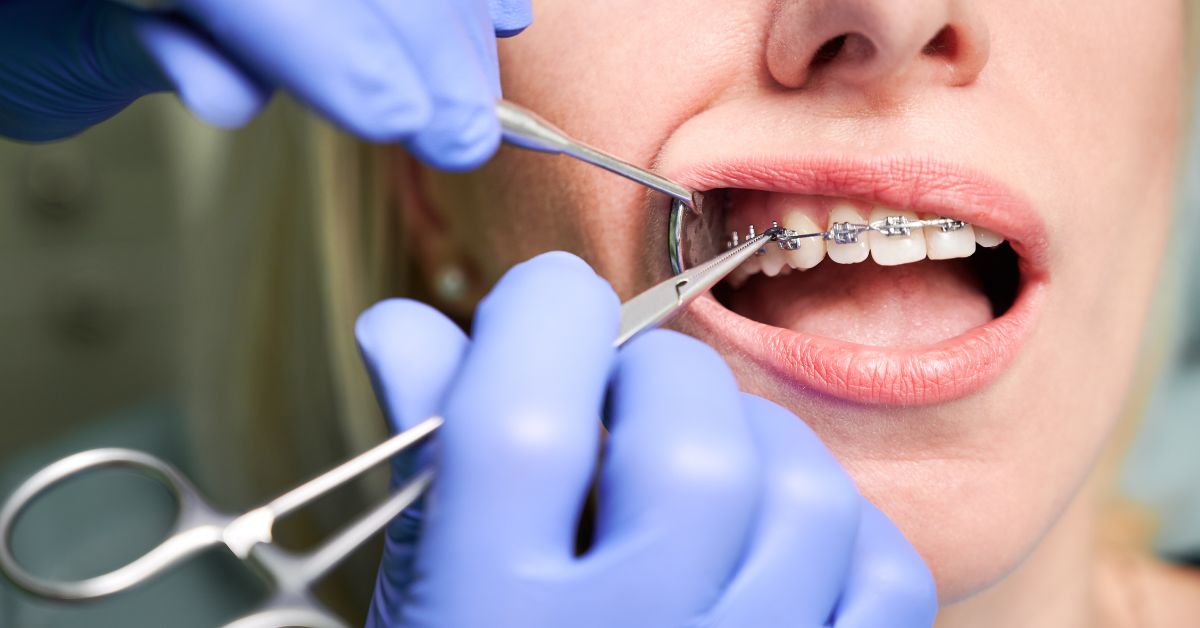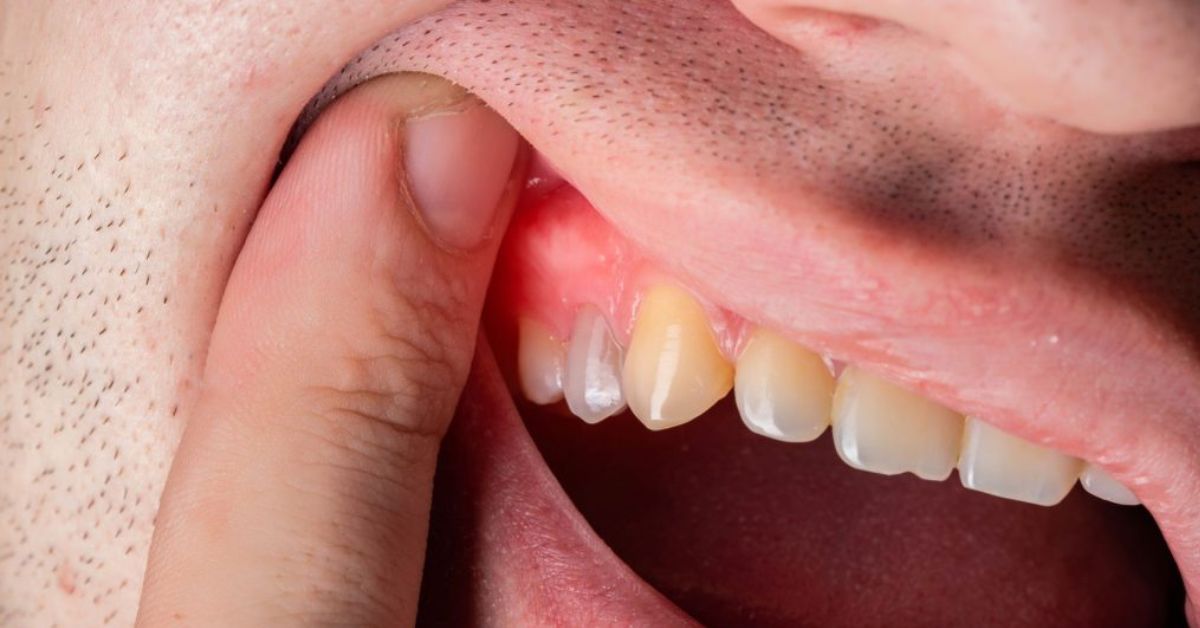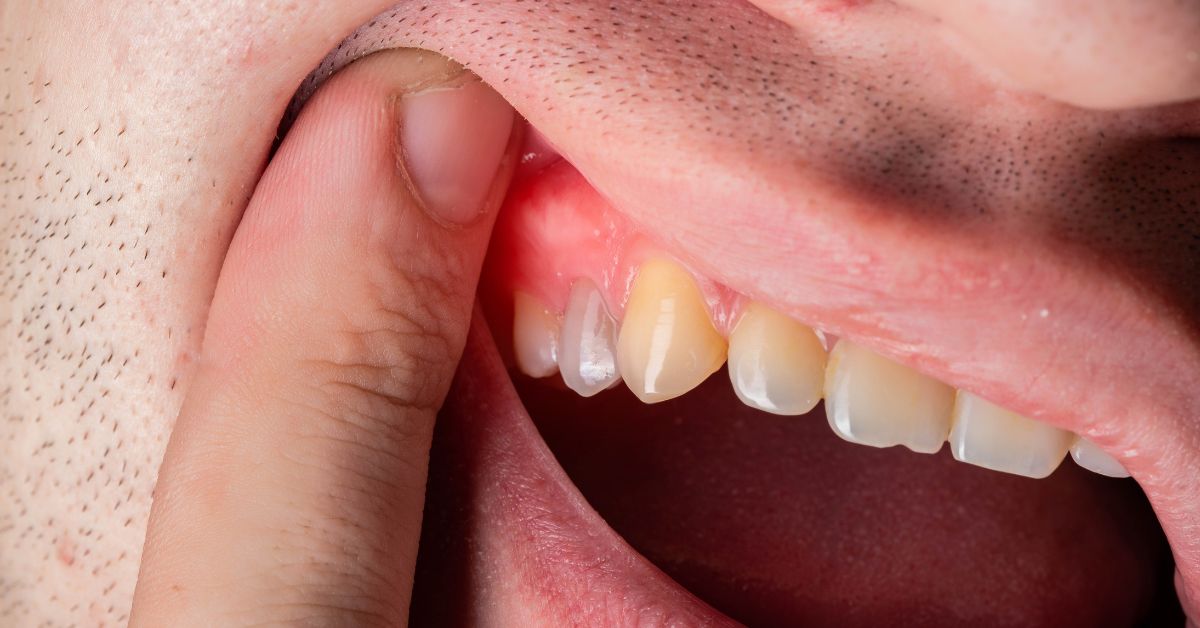Wisdom teeth are the third set of large molars, typically the last to emerge in each jaw. Do wisdom teeth need to be extracted, and is wisdom tooth extraction painful? Let’s explore these questions in the following article, referencing insights from Dr. Binh Tran Phuong, a specialist in Maxillofacial Dentistry at MedDental Dental System.
What are wisdom teeth?
In colloquial terms, wisdom teeth are often referred to as the third molars or, scientifically, as the eighth teeth, located at the rear of each dental arch. Generally, individuals have four wisdom teeth that typically emerge between the ages of 18 to 25. However, not everyone will develop wisdom teeth; some individuals may or may not have them. Therefore, the emergence of wisdom teeth can be discovered through natural growth or incidentally during dental examinations or orthodontic adjustments.
Discussing the sequence of tooth eruption, many parents may not be familiar with the order of eruption for each set of teeth. Specifically, the primary set of teeth, known as baby teeth, will emerge first, totaling 20 teeth. By the age of 6, children begin to shed their first set of teeth, not the front teeth but the sixth tooth. This is the tooth that will emerge in the same position when the child turns 6. Subsequently, the molars, canines, and large molars will be replaced. The eighth tooth (wisdom tooth) is the last to emerge as its function is related to chewing and grinding food, following a genetically determined sequence. This is a natural order, and the eighth tooth does not emerge first.
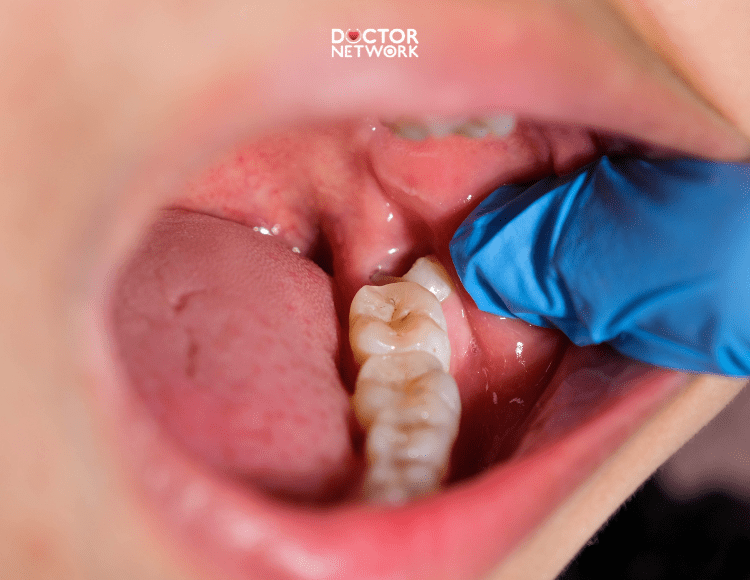
Wisdom teeth are the molars positioned at the back of the upper and lower jaws
Consequences of untimely handling of wisdom teeth
If wisdom teeth are not extracted in a timely manner, what are the consequences?
1. Impact on the seventh tooth
Wisdom teeth may cause cavities in the adjacent seventh tooth. In cases where the eighth tooth is closely positioned, leading to cavities in the seventh tooth, extraction of the eighth tooth is necessary.
2. Complications from impacted wisdom teeth
Impacted eighth teeth can lead to dental crowding, misalignment, and conditions such as impeded eruption. Failure to extract them may result in conditions such as abscesses, inflammation, jaw tightening, inability to open the mouth, and difficulty eating normally.
Especially dangerous for women, during the first three months of pregnancy, if pressure from the eighth tooth occurs, it can significantly affect the fetus. Severe cases may necessitate the suspension of pregnancy, as intervention and surgery become imperative.
3. Some other cases
In other cases, if an X-ray reveals a cyst below the tooth, it must be extracted to prevent damage to the jawbone. This is a complication that few people are aware of unless diagnosed by a surgical dentist.
Additionally, complications may arise in relation to the bite alignment. For example, having an upper eighth tooth without a corresponding lower eighth tooth, or vice versa, can cause the tooth to protrude, hindering jaw movement and leading to toothache, temporomandibular joint pain, and even stress. In such cases, extraction of the eighth tooth is recommended by dentists.
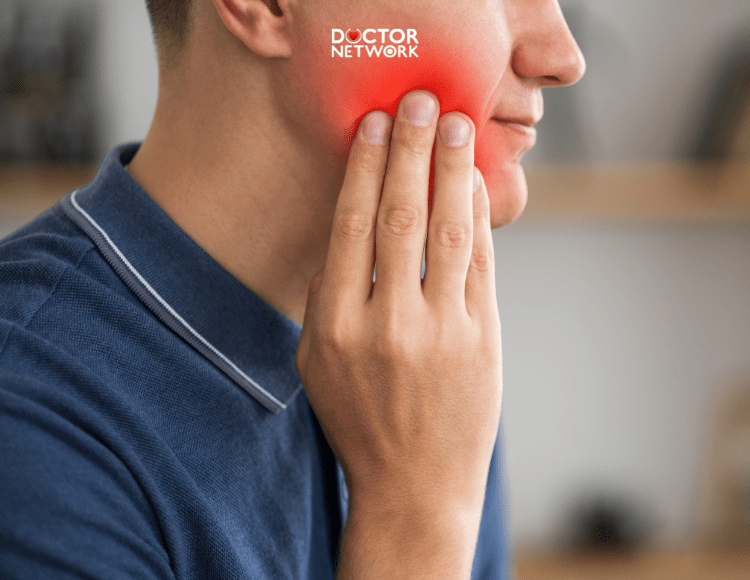
Typical signs of wisdom tooth eruption
When is it necessary to extract wisdom teeth?
Firstly, the emergence of wisdom teeth varies from person to person. While some individuals may experience pain and discomfort during eruption, others may have uneventful growth, allowing for normal activities.
Secondly, the decision to extract wisdom teeth depends on the oral condition. Proper oral hygiene can mitigate the risk of infection, impaction, and excessive pain during eruption.
In general, wisdom teeth should be extracted when there are indications, especially in cases where the teeth do not grow straight and result in complications. Specifically:
- Wisdom teeth grow at an angle, are misaligned, or tilt 90 degrees, or if the eighth tooth has cavities or is fractured.
- Cases where there is an upper eighth tooth but no corresponding lower eighth tooth, and vice versa, leading to elongation of the tooth, causing difficulty in food intake and resulting in cavities in the seventh tooth.
In some instances, interventions such as orthodontic treatments like braces may require the extraction of the eighth tooth.
Furthermore, cases where patients do not experience pain, but X-rays reveal that the eighth tooth is growing beneath the root of the seventh tooth, causing external displacement or cyst formation, may require intervention through X-ray or CT scans.
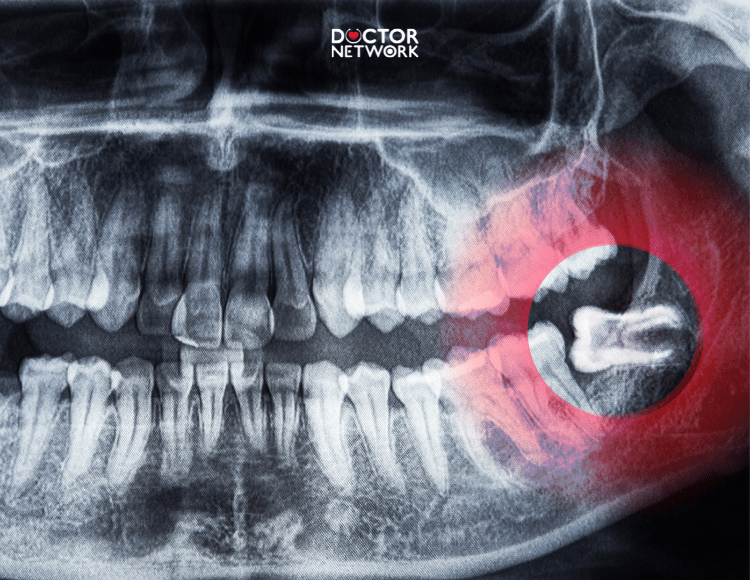
Is wisdom tooth extraction painful? – Yes, but It’s necessary
Is wisdom tooth extraction painful and dangerous?
The question “Is wisdom tooth extraction painful?” is a common concern for anyone considering this procedure. The answer is yes, but it depends on various factors:
1. Diagnosis based on the difficulty of the wisdom tooth’s growth position by the dentist.
2. The complexity of the extraction process, particularly in cases where the wisdom tooth is challenging to remove, leading to increased pain for the patient.
3. Dependence on the equipment used for the extraction.
4. The sterilization capabilities of the dental clinic. Post-surgery infection is a critical factor to consider. The dentist’s expertise and surgical skills also play a crucial role in ensuring a quick recovery.
Moreover, factors after extraction, such as poor home hygiene, failure to use prescribed medications, or inadequate sterilization, can lead to inflammation.
There are additional factors contributing to post-extraction pain, such as the presence of inner root fragments or bone fractures, and remnants of inflamed tissue left behind, all of which may cause discomfort.
Post-extraction care for wisdom teeth
Is wisdom tooth extraction painful after? The answer is yes, similar to any tooth extraction, there may be discomfort. However, proper post-extraction care can significantly alleviate this.
The specific post-extraction care instructions may vary based on the surgical technique employed by the dentist. For instance, if the wisdom tooth is extracted in a relatively straightforward manner, with minimal incisions and sutures, the patient may only need to consume soft food for the first few days. After eating, rinsing the mouth with saltwater and maintaining good oral hygiene, along with taking prescribed antibiotics, is essential.
In cases involving machinery or sutures, patients may be advised to apply ice for 15 minutes or until numbness sets in within the first 24 hours. If the area becomes excessively cold, patients should remove the ice, reapplying it when warmth returns. If significant swelling persists, a follow-up appointment with the dentist after the initial 3 days may be necessary.
In addition, some patients may experience bruising at the extraction site. This depends on individual factors, such as tissue laxity, and if advised by the dentist beforehand, it is a normal occurrence. After 1 to 10 days, the bruising will transition from purple to yellow and eventually disappear.
We hope that the information provided addresses your concerns about is wisdom tooth extraction painful?. If you experience any persistent pain or discomfort, it is advisable to seek immediate attention from reputable healthcare facilities for examination and appropriate treatment.”
Kiểm Duyệt Nội Dung
More than 10 years of marketing communications experience in the medical and health field.
Successfully deployed marketing communication activities, content development and social networking channels for hospital partners, clinics, doctors and medical professionals across the country.
More than 6 years of experience in organizing and producing leading prestigious medical programs in Vietnam, in collaboration with Ho Chi Minh City Television (HTV). Typical programs include Nhật Ký Blouse Trắng, Bác Sĩ Nói Gì, Alo Bác Sĩ Nghe, Nhật Ký Hạnh Phúc, Vui Khỏe Cùng Con, Bác Sỹ Mẹ, v.v.
Comprehensive cooperation with hundreds of hospitals and clinics, thousands of doctors and medical experts to join hands in building a medical content and service platform on the Doctor Network application.
















